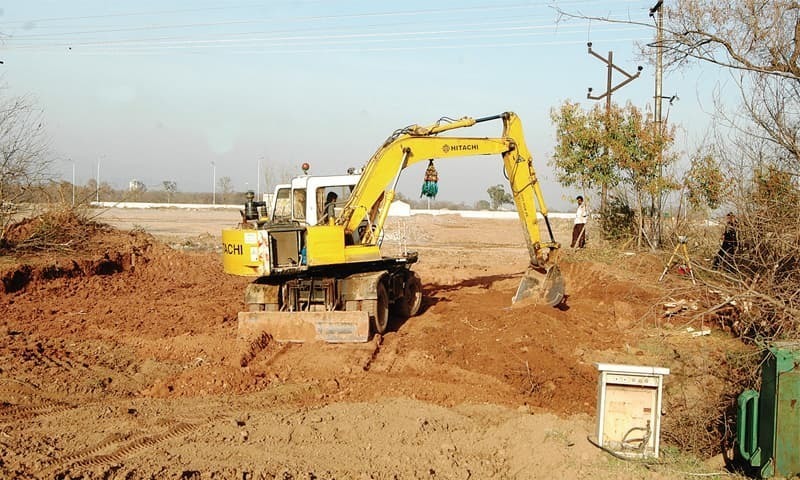The Capital Development Authority (CDA) and the PCB signed a memorandum of understanding (MoU) in 2012 under which the CDA allotted 35 acres near Shakarparian for the construction of the stadium. The project was supposed to be completed within a year, with 30 per cent of income from international matches and sponsorships to be given to the CDA, while remaining 70 per cent would go to the PCB.
The project fell through due to the PCB’s financial woes.
The PCB has now applied for a no-objection certificate (NOC) from the Pakistan Environmental Protection Agency (Pak-EPA) to execute the project, a source privy to the development said.
In addition to the proposed 50,000 seat stadium, a cricket academy, a five-star hotel, and other related facilities were part of the project in the forest area.
The stadium would be constructed in three years at a cost of Rs2 billion, according to initial estimates. According to an environmental impact assessment (EIA) report, the project will cause environmental degradation in the form of loss of 450 to 500 fully grown trees, while vegetation and shrubs on 15 acres will be effected. The project will also have bearing on wildlife and fauna and flora in the area, according to the EIA report.
According to environmentalists, during the construction phase, residents of sectors I-8, G-8, H-8, I-9, and I-10 will have to face air and noise pollution, while also predicting increases in lung, heart and eye diseases. The environmentalists have also warned that felling of trees and excavation will adversely impact the ecology of the area.
World Wildlife Fund (WWF) for Nature Executive Director Dr Ejaz Ahmad said that Shakarparian and Rawal Lake were part of the Margalla Hills National Park and has been notified as protected areas by the federal government under Section 21 of Islamabad Wildlife Protection, Preservation, Conservation and Management.
He described the area as “lungs for Islamabad city” and maintained that various illegal development activities in protected areas were being allowed to continue without appreciating the inviolability of the park, and in sheer defiance of EIA reports.
He said that unplanned, mushroom growth in development activities has led to an imbalance in the microclimate of the city.
Meanwhile, Saleem Asghar Mian, a former manager of the Pakistan cricket team, criticised the PCB for even proposing the stadium. “What is the point when you already have Rawalpindi Cricket Stadium a few kilometres away? It is not as if any big teams are going to tour Pakistan in the near future,” he said, while suggesting that the stadium would be bad for the city’s green image and would likely turn into a white elephant.
On the PCB’s claim that the stadium is a longstanding public demand, he said just because the public demand something unnecessary or wrong does not mean the government should agree to it.
“The money would be better spent upgrading Pindi stadium, but where is the money in that for cricket board members, politicians and construction companies?”






